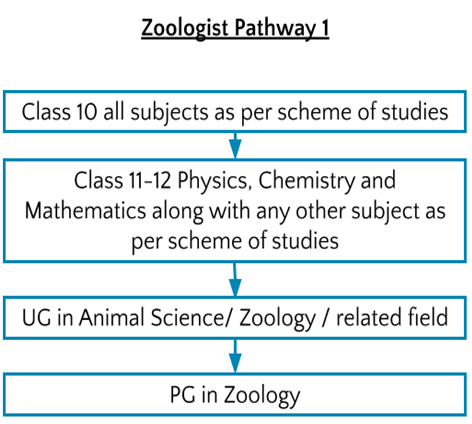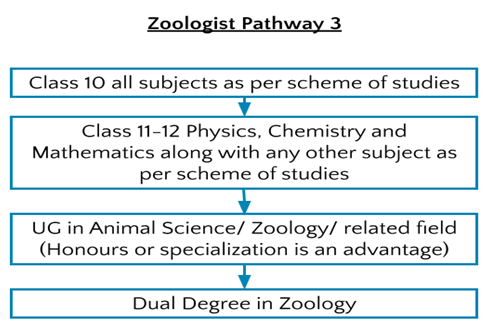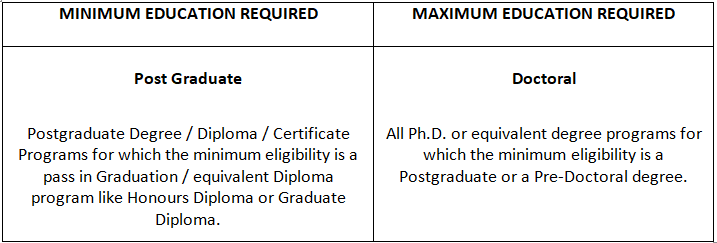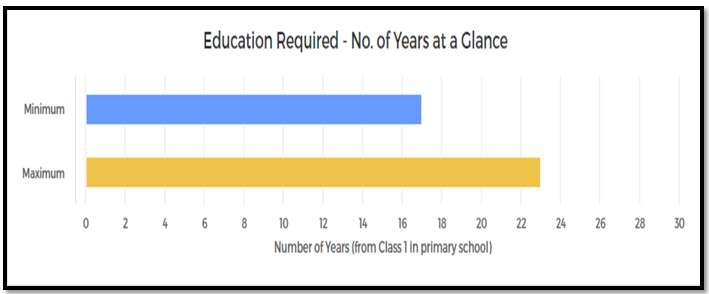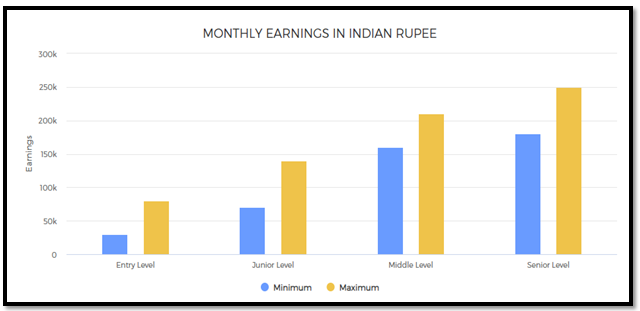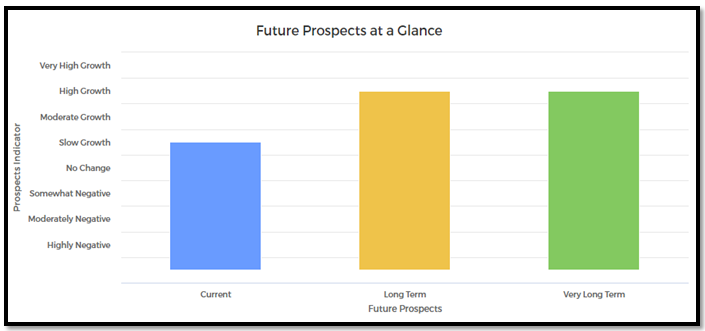Zoologist
Entry Level Qualification
Graduate
Career Fields
Others
For Specially Abled








About Career
Zoologists are the biologists who study animals. Zoologists study anatomical structure, cells, tissues, organs, physiological and nervous systems, embryology, evolution, animal behaviour and classification and distribution of all kinds of animals (including the extinct animals too). They also study how animals interact with their ecosystems.
As a Zoologist, you will observe and study animals both in the laboratory and in the wild. Some of you will also work on the conservation of several endangered animals. As a zoologist, you will also study aquatic animals like whales, fish, etc. Depending on your specialization, you might either study the entire animal or only a few parts of an organism. You will have both observational and research-based work. Be ready to work in different climatic conditions as zoologists go deep under the water, or work in the polar region and also in the hot desert.
Key roles and responsibilities
As a zoologist, depending on your field of specialization, you would have the following roles and responsibilities:
1. You will work towards planning for wildlife population and their habitat. You will consult all stakeholders for the same.
2. You will work to calculate the population of animals in their habitat.
3. You will study the nutritional requirements of animals and nutritive values of animal feed materials for animals in captivity.
4. You will write up or orally communicate research findings to the scientific community, producers, and the public.
5. You will Study the effects of management practices, processing methods, feed, or environmental conditions on quality and quantity of animal products, such as eggs and milk.
6. You will ensure compliance with environmental laws and notify law enforcement bodies in case of any violations.
7. You will conduct experimental studies on both animals in a controlled environment and in the wild. You will collecta biologicalspecimen of animals for analysis.
8. You will study different characteristics of animals including their interaction with others, population dynamics, diseases, movement etc.
9. You will analyse the effect of human activity on animals and their natural habitat.
10. You will research, initiate and maintain a different breeding program for endangered animals.
PARTICULARS | DESCRIPTION |
Name | Zoologist |
Purpose | Study The Nutritional Requirements |
Career Field | Mathematics & Science |
Required Entrance Exam | CUET UG, CUET PG |
Average Salary | 400000 - 500000 Rs. Per Year |
Companies For You | Animal Biotechnology, Zoological Survey of India, & Many More |
Who is Eligible | Graduate |
Career Entry Pathway
Class 10 all subjects as per scheme of studies– Class 11-12 Physics, Chemistry and Mathematics along with any other subject as per scheme of studies – UG in Animal Science/ Zoology / related field – PG in Zoology
After Class 11-12 Physics, Chemistry and Mathematics along with any other subject as per scheme of studies and then study for an undergraduate science degree in Animal Science/ Zoology / related field (Honours or specialization is an advantage) followed by a master’s degree in Science stream in Zoology.
Class 10 all subjects as per scheme of studies– Class 11-12 Physics, Chemistry and Mathematics along with any other subject as per scheme of studies – UG in Animal Science/ Zoology/ related field (Honours or specialization is an advantage) – PG (Animal Science/ Zoology/ related field – Ph.D. in Zoology
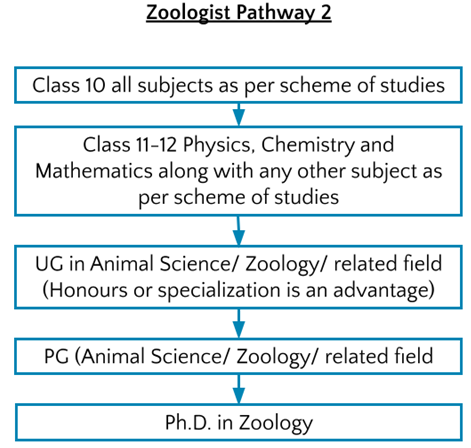
After Class 11-12 Physics, Chemistry and Mathematics along with any other subject as per scheme of studies and then study for an undergraduate science degree in Animal Science/ Zoology/ related field (Honours or specialization is an advantage) followed by a master’s degree in Science stream in Animal Science/ Zoology/ related field. After the Master’s course, you can pursue a PhD in Zoology.
Class 10 all subjects as per scheme of studies– Class 11-12 Physics, Chemistry and Mathematics along with any other subject as per scheme of studies – UG in Animal Science/ Zoology/ related field (Honours or specialization is an advantage) – Dual Degree in Zoology
After Class 11-12 Physics, Chemistry and Mathematics along with any other subject as per scheme of studies and then study for an undergraduate science degree in Animal Science/ Zoology/ related field (Honours or specialization is an advantage) followed by a M.Sc. and Ph.D. dual degree in Zoology.
Required Qualification & Competencies
You can study for a Bachelor’s degree in Zoology / Animal Science and then do a Master’s degree in any one of the following fields:
1. Anthropology
2. Aquatic Biology
3. Entomology
4. Herpetology
5. Invertebrate Zoology
6. Mammology
7. Marine Zoology
8. Ornithology
9. Other Zoological Sciences
10. Vertebrate Zoology
11. Zoo archaeology
12. Zoology
Compentencies Required
Interests
1. Investigative: You should have interests for Investigative Occupations. Investigative occupations involve working with ideas and quite a lot of thinking, often abstract or conceptual thinking. These involve learning about facts and figures; involve use of data analysis, assessment of situations, decision making and problem-solving.
2. Realistic: You should have interests for Realistic Occupations. Realistic occupations involve more practical and hands-on activities than paperwork or office work. Realistic occupations often involve physical activities for getting things done using various tools and equipment.
Abilities
1. Abstract Reasoning: The ability to understand ideas which are not expressed in words or numbers; the ability to understand concepts which are not clearly expressed verbally or otherwise.
2. Deductive Reasoning: The ability to apply general rules and common logic to specific problems to produce answers that are logical and make sense. For example, understanding the reasons behind an event or a situation using general rules and common logic.
3. Flexibility of Closure: The ability to identify or detect a pattern (a figure, object, word, or sound) that is hidden among other distracting materials.
4. Inductive Reasoning: The ability to combine pieces of information from various sources, concepts, and theories to form general rules or conclusions. For example, analysing various events or situations to come out with a set of rules or conclusions.
5. Inter-Personal: The ability to build and maintain good relationships with others at workplaces and elsewhere.
6. Naturalistic Intelligence: The ability to recognise different flora and fauna of the world; sensitivity towards nature and natural surrounding; sensitivity towards the needs of different flora and fauna.
7. Verbal Reasoning: The ability to think and reason with words; the ability to reason out ideas expressed in words.
8. Written Comprehension: The ability to read and understand information and ideas presented in writing.
Knowledge
Biological Sciences: Knowledge of plants and animals, their anatomical structure, cell structure, tissues, physiological functions, evolution, and all other related aspects.
Skills
1. Active Learning: Focused and continuous learning from various sources of information, observation and otherwise for application in getting work done.
2. Communication in English: Skills in communicating effectively in writing as well as verbally with others in English language.
3. Coordination: Skills in working together with other people to get things done.
4. Critical Thinking: Skills in analysis of complex situations, using of logic and reasoning to understand the situations and take appropriate actions or make interpretations and inferences.
5. Judgment and Decision Making: Skills in considering pros and cons of various decision alternatives; considering costs and benefits; taking appropriate and suitable decisions.
6. Problem Solving: Skills in analysis and understanding of problems, evaluating various options to solve the problems and using the best option to solve the problems.
7. Reading Comprehension: Skills in understanding written sentences and paragraphs in work related documents.
8. Scientific: Skills in using various scientific rules and methods to get things done or solve problems.
Personality
1. You are somewhat organised in your day-to-day life and activities.
2. You are somewhat careful about your actions and behaviour.
3. You are imaginative sometimes.
4. You prefer to experience new things and have new experiences sometimes.
5. You act independently sometimes but do not do so in some other times.
6. You are always practical or in most situations.
Career - Job Opportunities & Profiles
1. Most of the universities and college will hire you as a professor at the position of Junior Professor or Assistant Professor.
2. If you are into research, then you will be hired at the position of research associate. PhD research fellows will be hired as a Junior Research Fellow.
3. Research laboratories and Research Institutes will hire you as a scientist/scientist officer with the lowest grade (Grade C).
4. As a scientific advisor with PETA and other animal organizations.
5. As a Zoological Assistant with Zoological Survey of India after your Bachelor’s degree.
6. As a Project Assistant/ Research Associate/ Research Fellow / Senior Zoological Assistant / Assistant Zoologist with Zoological Survey of India after your Master’s degree.
7. As a Scientist with Zoological Survey of India after your Ph.D.
You can find job opportunities at the following facilities:
1. Colleges and universities
2. Zoological and Animal Science Research Institute like National Institute of Animal Biotechnology, Zoological Survey of India, Wildlife Institute of Indiaetc.
3. Zoos, National Parks and Wildlife Sanctuaries (services under the Zoological Survey of India)
4. In the various laboratories and offices of the Zoological Survey of India
5. Medical Research Institutes like Institute for Stem Cell Science and Regenerative Medicine.
Work Environment
As a Zoologist, you will be either working in the research labs or in the field. If you are working in a research lab, they will be studying data collected about animals, farms, their breeding, diseases etc. If you are working in the field, then it will be a highly challenging role as you will need to tackle and study animals. It could go beyond office hours also sometimes.
Most of the field jobs will include travelling to a harsh location in harsh climatic conditions including travelling to high mountains, sea, underneath water bodies, desert, jungles, etc. Most of these field jobs don’t have working hours as you might have to work for several hours at night waiting for finding animals or studying their behaviour.
Specialisation Tracks In This Career
Anthrozoologist
Anthrozoologist is a specialist who studies the integration of human and other animals. They combine the knowledge of anthropology, ethnology, medicine, psychology and zoology. They study any major positive effects of the human-animal relationship on either of them and study this interaction.
Entomologist
An entomologist is a specialist zoologist who studies insects. It is one of the largest sub-section of zoology as over 1.3 million species are described as insects and they overall form two third of all animals. An entomologist studies anything and everything related to insects and thus they have a cross-section of topics such as molecular genetics, the behaviour of insects, biochemistry, systematics, physiology, physiology, developmental biology, ecology, morphology, and palaeontology. While there is specialised zoologist for each of these topics, entomologist does cover them for insects.
Herpetologist
A herpetologist is the specialist zoologist who studies amphibians and reptiles. Amphibians are animals including toads, frogs, salamanders, newts, and caecilians. Reptiles are animals including snakes, lizards, amphisbaenids, turtles, terrapins, tortoises, crocodilians, and the tuatara).
Mammologist
Mammologist is a zoologist specialist who studies mammals. Mammals are the vertebrate animals with fur, four-chambered hearts, nervous system and the central vertebra. Animals studied my mammologist include cats, dogs, mice, kangaroo, whale, etc. There are around 4200 species of mammals. Mammologist studies natural history, taxonomy, systematics, anatomy and physiology, ethology, ecology, and management and control.
Cetologist
Cetologist is a specialist zoologist who studies marine mammals. A cetologist thus studies whales, dolphins, porpoise, etc. There are around 80 species of mammal animals that cetologist studies. Cetologist studies and explains the evolution of cetacean animals, distribution, morphology, and behaviour and community dynamics.
Ichthyologist
An ichthyologist is a zoologist specialist who studies fishes. Ichthyologist studies bonny fish (Osteichthyes), cartilaginous fish (Chondrichthyes), and jawless fish (Agnatha). Each year over 250 new species of fish are discovered each year, but approximately 35000 species of fish are studied by Ichthyologist.
Marine Zoologist
Marine zoologist is a specialist scientist who studies animals that live in the ocean or marine water bodies including rivers, lakes, oceans, sea, etc. Marine zoologist studies their biology and behaviour.
Ornithologist
An ornithologist is a specialist zoologist who studies birds. Ornithologist studies different aspects of biological science including evolution, behaviour, ecology, anatomy, taxonomy, instincts, learning, ecological niches, guilds, island biogeography, phylogeography, and conservation.
Malacologist
Malacologists are the specialist invertebrate zoologist who studies Mollusca. After arthropods (insects), Mollusca forms the second largest group of animals in terms of a total number of species. Mollusca includes snails and slugs, clams, octopus and squid, and numerous other kinds, many of which have shells. Malacologist’s studies taxonomy, ecology and evolution of Mollusca.
Career Growth
1. Research laboratories will hire you as a scientist/scientist officer with the lowest grade and the grade changes from low to high. In India, grades are “Scientist “C” as the joining level and then D, E, F, G, H, etc. A senior-level scientist can also get into administrative positions like Principal Scientist, Assistant Director, Deputy Director, Director, etc.
2. The career growth in university and college states from Assistant Professor and then Associate Professor, Professor and Professor Emeritus. Professors can also get administrative positions such as Director/Dean/Vice Chancellor, etc.
3. If you are hired as a research associate (JRF and SRF), then you will go on to become a Doctoral Research Fellow, then Post-Doctoral Research Fellow and then Scientist in Progressive Grades.
Salary Offered
1. At the entry level, you can join as a research associate with a basic salary of Rs. 25,000 to 30,000. As a doctoral research fellow (junior research fellow) you would be earning around Rs. 35,000 to 38,000 per month. At the entry level, as a Scientist (grade C) you would be earning around Rs. 80,000 to 100,000 per month. As an assistant professor, you would be earning anything between Rs. 65,000 INR to 70,000 per month.
2. At the junior level with a work experience of 2-6 years, you would be earning anything between Rs. 1,20,000 to 1,40,000 per month.
3. At the middle level with an experience of 10-12 years, you would be earning anything between Rs. 1,40,000 to 1,90,000 per month as a scientist and Rs. 1,20,000 INR to 1,60,000 as a professor.
4. At the senior level of over 15 years of work experience, you would be earning anything between Rs. 1,60,000 to 2,00,000 per month as a professor and Rs. 2,10,000 to 2,50,000 per month as a Scientist.
Monthly Earnings In Indian Rupee
1. Entry level: 0 - 2 years of work experience
2. Junior Level: From 1 to 12 years of work experience
3. Mid-Level: From 5 to 20+ years of work experience
4. Senior Level: From 10 to 25+ years of work experience (there could be exceptions in some high-end technical, financial, engineering, creative, management, sports, and other careers; also in the near future, people will reach these levels much faster in many careers and in some careers, these levels will have no meaning as those careers will be completely tech skill driven such as even now, there is almost no level in a Cyber Security Expert’s job)
Work Activities
1. Analysing and interpreting data and information: Analysis of data and information to find facts, trends, reasons behind situations, etc.; interpretation of data to aid in decision making.
2. Communicating with co-workers and others: Communicating with people in writing, verbally or otherwise inside your workplace and various other people who have professional relationships with your place of work including vendors, government officials, etc. or with people at large.
3. Decision making and problem solving: Analysis of data and information; evaluation of alternative decisions and results of decisions; taking the right decisions and solving problems.
4. Getting Information and learning: Observing, hearing, reading, using computers, or otherwise obtaining information and learning from it.
5. Identifying objects, actions, and events: Identifying various characteristics of objects; observing and understanding actions and events; understanding changes in actions and events.
6. Providing advices and consultation to others: Giving advices or consultation to others about various issues, conceptual matters, know-hows, scientific matters, products or services.
7. Training and teaching: Understanding educational and training needs of others, developing training programs and educational programs, conducting training programs, teaching and instructing others.
8. Updating and using relevant knowledge: Keeping updated with the latest knowledge relevant to your fields of work and use of the relevant knowledge in getting things done.
9. Using computers for work: Using computers for day-to-day office work; using computer software for various applications in day-to-day professional work; entering data and process information; for writing.
10. Working in a team: Working in a team of people; developing team; maintaining professional relationships among team members.
Future Prospects
Zoologist mostly works around natural habitats of animals. India is one of the most biodiverse nations in the world. It is known as one of the few megadiverse nations with ver 10% of world species fond here. There are around 91 thousand of animals species found in India as of now. These include 65, thousand insect species, 2456 species of fish, 1230 bird species, 32 mammal species, 440 species of reptiles, 200 amphibians species, and over 500 molluscs species. Apart from these species of animals India has 400 breeds of sheep, 27 breeds of cattle and 22 breeds of goats.
India is home of few of the rarest species of animals including Bengal Fox, Asiatic Cheetah, Marbled Cat, Asiatic Lion, Indian Elephant, Asiatic Wild Ass, Indian Rhinoceros, Markhor, Gaur, Wild Asiatic Water Buffalo etc.
With such a high variety of species and diversity, India is a rich place to do research in the field of zoology. However, most of the zoology careers are still limited to government research field only. Though there is a big potential in the future for this career to boom, it has limited opportunities as of now.
Future Prospects At a Glance


